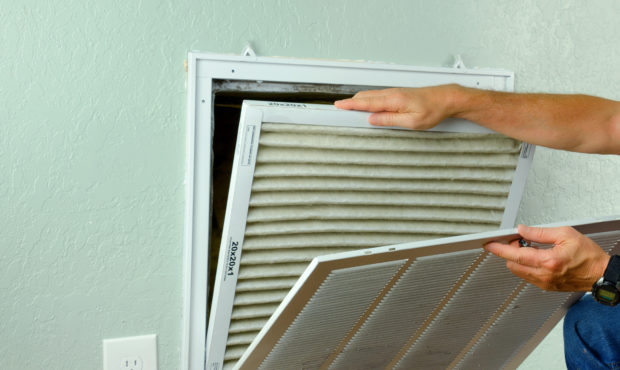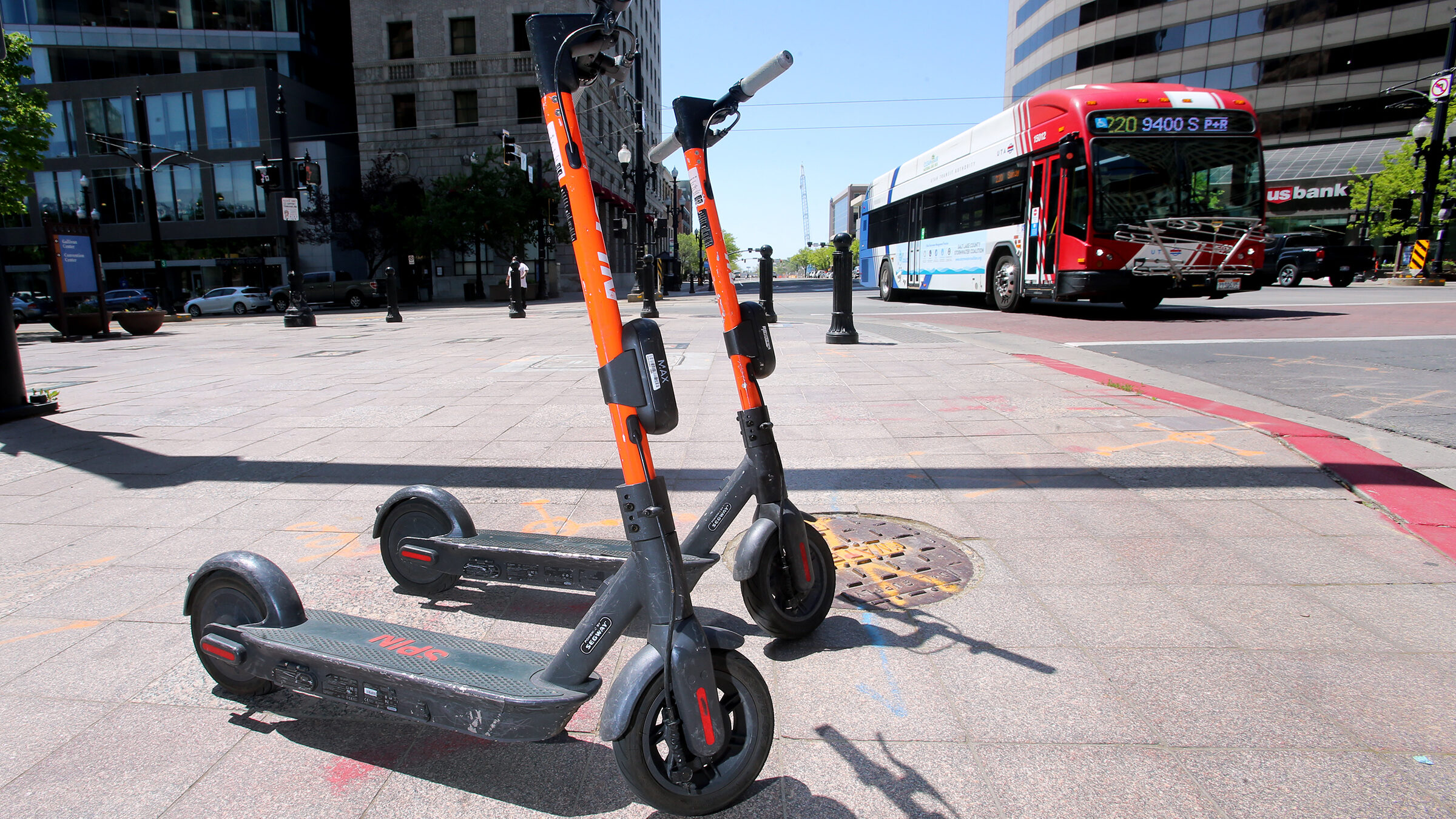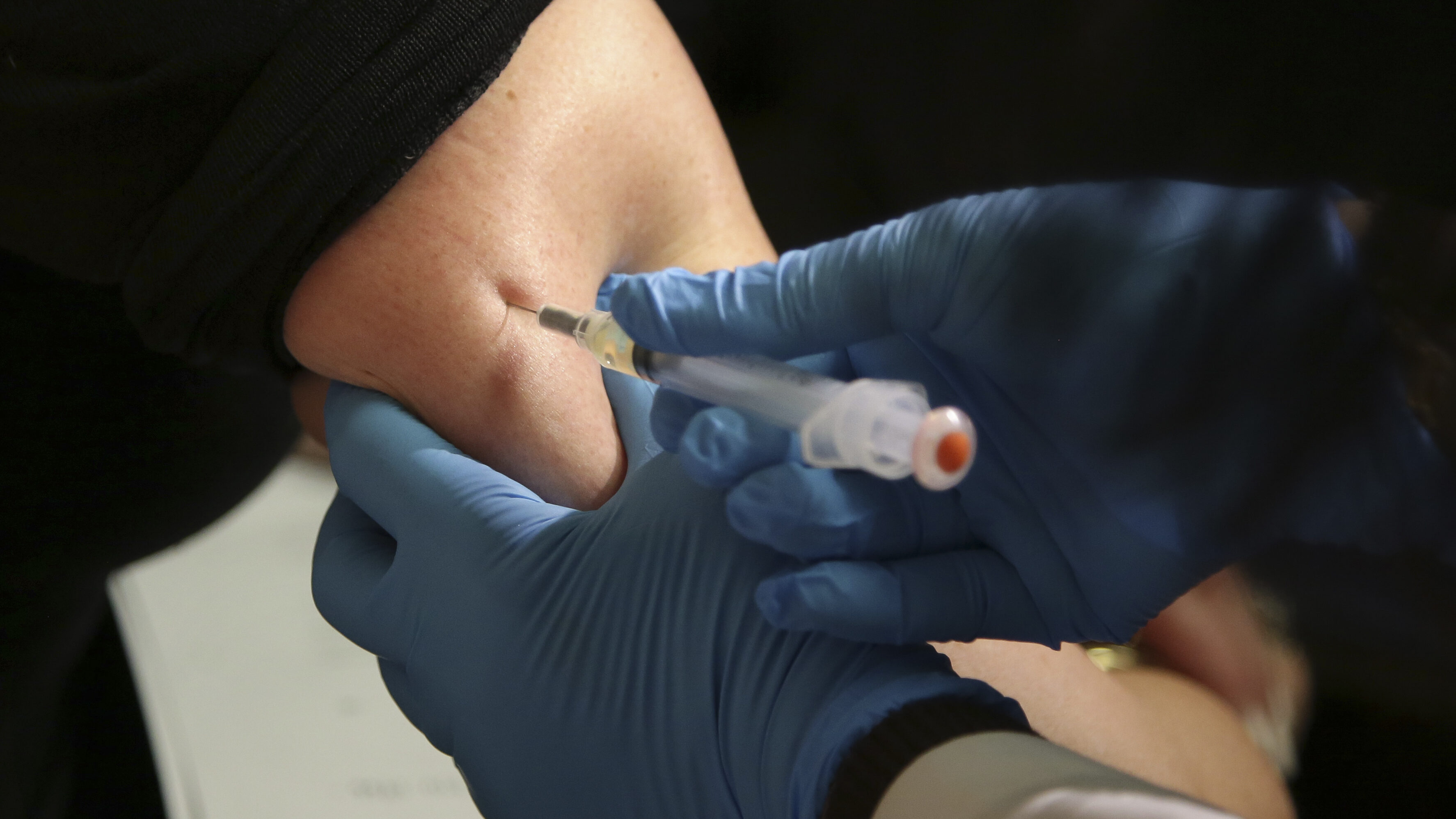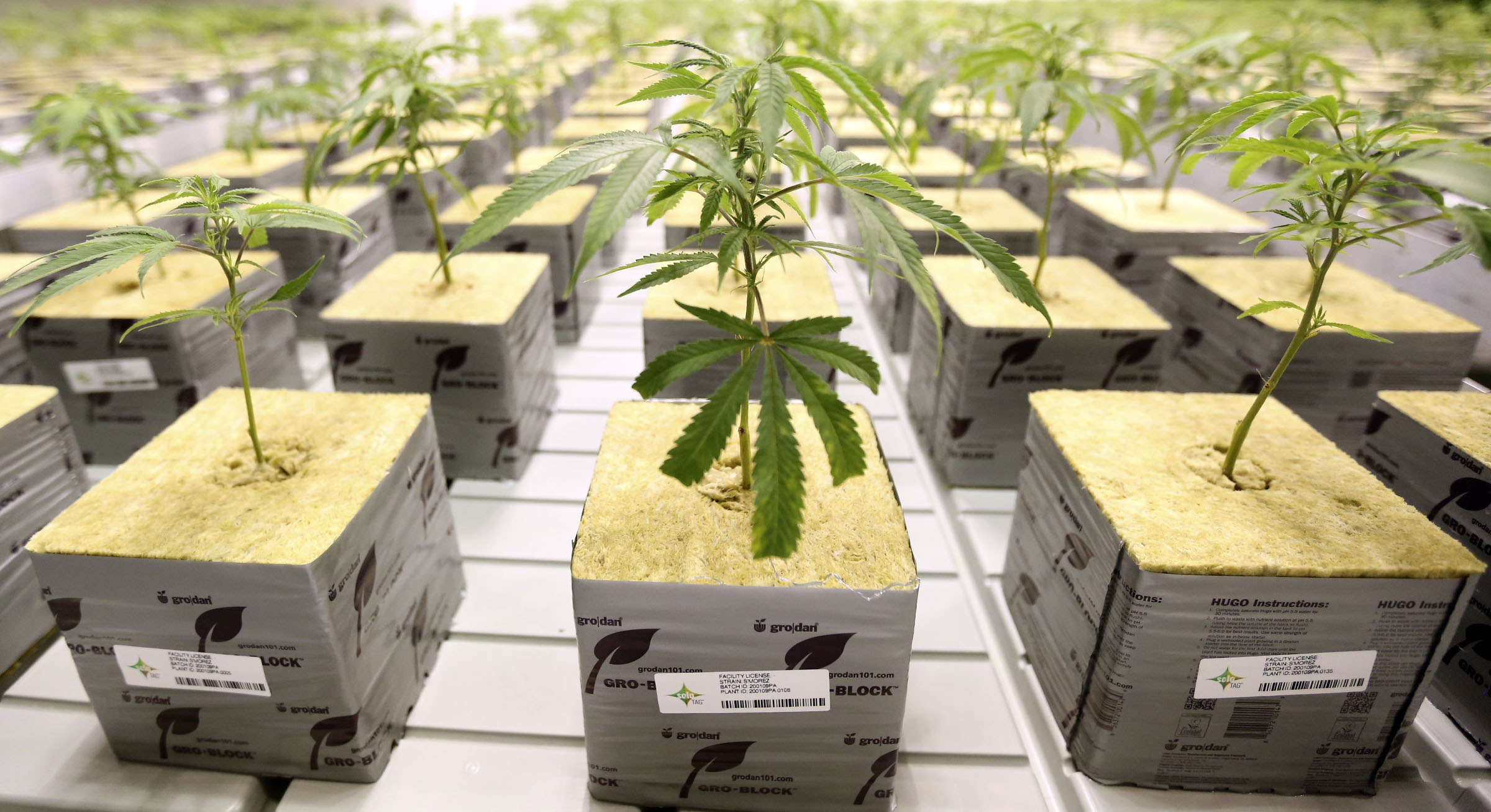Can the AC filter in your home, office or local mall protect you from Covid-19?
Jul 7, 2020, 12:41 PM | Updated: 2:21 pm

High-efficiency filters in the 13-to-16 MERV range are often used in hospitals, nursing homes, research labs and other places where filtration is important. Photo courtesy - Shutterstock
(CNN) — When New York Governor Andrew Cuomo announced last week that malls in New York could not reopen until they installed high-efficiency particulate air filters capable of trapping the virus that causes Covid-19, Harvard environmental health researcher Joseph Gardner Allen was thrilled.
“I’ve been writing consistently since early February about how healthy buildings should be the first line of defense against the novel coronavirus,” said Allen, who directs the Healthy Buildings program at the Harvard T.H. Chan School of Public Health.
“I’m really grateful that we have a leader in the country — somewhere — who was finally talking about healthy buildings, ventilation and filtration,” Allen said. “That hasn’t happened before. It just hasn’t happened.”
A different priority
Allen was one of 239 scientists who wrote an open letter to the World Health Organization, the US Centers for Disease Control and Prevention and other health agencies, asking for a change in their guidance to the public on how the novel coronavirus, or SARS-CoV-2, can spread.
Current guidance only focuses on “handwashing, maintaining social distancing, and droplet precautions,” the letter, published Monday in the journal Clinical Infectious Diseases, said.
The health agencies are ignoring the tiny droplets of virus that sputter and spray from our mouths, become aerosolized and then float away into the air, the scientists said, as a likely means of transmission.
“They don’t want to talk about airborne transmission because that is going to make people afraid,” co-author Donald Milton, a professor of environmental health at the University of Maryland, told CNN in a prior interview.
“The best vaccine against fear is knowledge and empowering people to take care of themselves,” Milton said. “Why wearing a mask is important is because it blocks the aerosols at their source, when it is easy to block them.”
Because the CDC and WHO “have been so slow to acknowledge aerosol transmission is happening, buildings are not putting in appropriate control measures,” said Allen, who has focused his career on “sick buildings” and how they affect worker performance and productivity.
“The prudent and pragmatic approach is to acknowledge that airborne transmission is happening and put in the controls. If we find out in five years, that airborne was 5% of transmission, then OK,” Allen said. “But what if it’s 20% or 30% and we failed to acknowledge it? That’s a problem.”
The CDC says “Covid-19 is thought to spread mainly through close contact from person-to-person,” through “respiratory droplets produced when an infected person coughs, sneezes, or talks.”
“I subscribe to the CDC opinion that the vast majority of transmission occurs within 3 to 6 feet from the infected person. That’s the highway where all the traffic is — where the vast majority of this virus is transmitted,” said infectious disease expert Dr. William Schaffner, a professor of preventive medicine and infectious diseases at Vanderbilt University School of Medicine in Nashville.
“Are there side streets where it can become an aerosol and spread into the air? Yes,” Schaffner said, adding that isn’t likely to create a significant transmission route. If future public health investigations find these “aerosol transmission events are more common than currently thought,” that could change priorities.
“But I don’t think we need to change all the AC units in the US and around the world based on side street traffic,” Schaffner added. “We want to attack the high traffic route by the big three — masks, social distancing and avoiding large groups. Then we’ll get virus transmission down.”
A role for aerosols?
A mid-March study found SARS-CoV-2 can survive in microscopic respiratory droplets about 2.5 microns in diameter and smaller, which can remain airborne and viable for up to three hours or more.
In early May, Harvard’s Allen and Linsey Marr, a professor of civil and environmental engineering at Virginia Tech, published a paper that rounded up research focusing on the role of smaller airborne particles in the spread of the novel coronavirus.
“It is impossible for someone to release ‘large droplets’ (>5 microns) without also releasing smaller ones. Thus, transmission that is purported to occur via the spray of large droplets from a cough could in fact be occurring through inhalation of much smaller droplets at close range,” the paper said.
Marr, who made a groundbreaking discovery that flu virus could float in the air in microscopic droplets for an hour or more, likes to use cigarettes as a way to explain how viruses spread.
“The smaller microscopic ones that we call aerosols behave kind of like cigarette smoke. So they’re going to be more concentrated closer to the smoker, the person who might be infected. As you get farther away, your exposure would be much less,” Marr said.
Will masks protect against those microscopic floating droplets? Top-rated N95 and surgical-grade masks will, and scientists are scrambling to study and tweak the effectiveness of homemade masks.
“For most cloth face masks, there is no inner filtration layer that traps harmful particles,” said Sara Greenstein, president and CEO of Lydall, one of the companies who signed with the U.S. Department of Defense to produce filtration media for N95 masks.
“Although wearing a cloth face mask is better than nothing, it is no substitute for an N95 or surgical mask, which are precisely engineered, highly technical products,” Greenstein said.
Even when medical-grade masks are widespread, ventilation systems with highly effective filters are another key way to filter droplets from the air, Allen said.
MERV ratings
In his edict to New York mall owners, Cuomo was talking about HEPA filters, which have the highest MERV ratings, between 17 and 20.
What’s MERV? It stands for “minimum efficiency reporting value,” and it’s how filters are rated in their ability to trap tiny particles. The MERV ratings go from one to 20: Filters with higher MERV ratings are more effective than filters with lower ratings.
At the highest end, HEPA filters are used by hospitals to create sterile rooms for surgeries and to control infectious diseases, and are able to remove 99.97% of dust, pollen, mold, bacteria and other airborne particles with a size as small as 0.3 microns. For comparison, Covid-19 is thought to be between 0.06 to 1.4 microns.
“Filters are rated at their worst performance, so 99.97% is the worst it will do,” Allen said. “And that’s rated for a particle size of 0.3 microns, but smaller and larger it actually does better. So the point is that it’s capturing nearly all particles.”
Unfortunately, most businesses and home owners may find it difficult to retrofit their existing system to accommodate a HEPA filter, or any filter higher than the rating recommended by the system’s manufacturer.
Doing so can actually impair the system’s performance: Smaller pores in HEPA air filters make it more difficult for it to push air. Using denser filters can affect the efficiency of the unit and strain the fan, while decreasing indoor air quality — the opposite of what you desire.
“HEPA filtration is not always going to be feasible or practical,” Allen said. “But there are other filters that can do the job. What is recommended now by the standard setting body for HVAC is a MERV 13 filter.”
High-efficiency filters in the 13-to-16 MERV range are often used in hospitals, nursing homes, research labs and other places where filtration is important.
“If you’re an owner of a home, building or mall, you want to have someone to assess your system and install the largest MERV number filter the system can reliably handle without dropping the volume of air that runs through it,” advised Erin Bromage, an associate professor of biology at the University of Massachusetts Dartmouth.
“In addition, virtually all modern air conditioning systems in commercial buildings have a process called makeup air where they bring in air from outside and condition it and bring it inside,” said Bromage, a CNN contributor who wrote a blog post in early May — “The Risks — Know Them — Avoid Them,” that got over 13 million views in one week.
Building owners should be looking at increasing the amount of makeup air that is brought inside by opening dampers, Bromage suggested.
“It’s worse in regards to energy, but the more outside air we bring in, the more dilution of the virus we have and then the safer you are,” Bromage said, adding that it’s important to also monitor humidity levels.”
“There’s sort of a ‘Goldilocks’ zone for the coronavirus, between 40 and 60% humidity, where it doesn’t survive for very long,” Bromage said.
Below 40% humidity, he said, the infected droplets hang in the air longer, thus providing the opportunity to travel farther to infect people. Above 60%, the droplet absorbs more moisture, growing heavier and more vulnerable to gravity, “which sounds like a great thing,” Bromage said.
“But it actually drops onto surfaces much faster and being wet actually keeps the virus alive and infectious for longer,” he added.
What to do?
First, focus on following public health recommendations: Wear masks when you go outside, stay away from large crowds and 6 feet from anyone not in your “quarantine bubble,” wash your hands with soap frequently, keep your hands away from your face, and try to only go to outdoor locations with excellent air circulation and filtration.
If you have the resources, there are also personal HEPA air purifiers on the market, designed to clean a standard room of a home. Some even come with humidifiers that will measure the air and keep the room between 40% and 60%, while others incorporate UV light technology designed to kill stray particles.
“Properly balanced UV light will inactivate viruses and bacteria in the air, which just adds an extra layer to the protection coming from the air purifier,” Bromage said.
Costs range from a few hundred to over a thousand dollars, but don’t be fooled by the price tag: You’re looking for a machine with a HEPA filter designed for the size of your room — so measure carefully. Having too small of a machine in a large room won’t clean the air — while having a large system in a small room is a waste of money.
Finally, know that HEPA filters can be pricey and will need frequent attention to keep them in top performance.
Many point to the cost of filters and the expense of retrofitting buildings and say it may not be worth it. That’s not always the case, Allen said.
“It’s a total misnomer that healthy building strategies and higher ventilation rates and filtration are expensive strategies,” Allen said. “When people know and understand how it’s transmitted, then they’re empowered to make better decisions.
“And that includes right in your home: You’d have people over, open up those windows; you’re in your car with somebody else, roll down the window, a few inches,” Allen said.
“No one strategy alone is going to work. But if we layer enough of these on top of each other, we can significantly reduce risks.”
The-CNN-Wire
™ & © 2020 Cable News Network, Inc., a WarnerMedia Company. All rights reserved.
How To Prevent the Spread of COVID-19Coronavirus
COVID-19 coronavirus is transmitted from person to person. It is a virus that is similar to the common cold and the flu. So, to prevent it from spreading:
- Wash hands frequently and thoroughly, with soap and water, for at least 20 seconds.
- Don’t touch your face.
- Keep children and those with compromised immune systems away from someone who is coughing or sneezing (in this instance, at least six feet)
- If there is an outbreak near you, practice social distancing (stay at home, instead of going to the movies, sports events, or other activities.)
- Get a flu shot.
Local resources
Utah’s Coronavirus Information
The Church of Jesus Christ of Latter-day Saints
Utah Coronavirus Information Line – 1-800-456-7707
National Resources
Centers for Disease Control and Prevention
Commonly asked questions, World Health Organization













